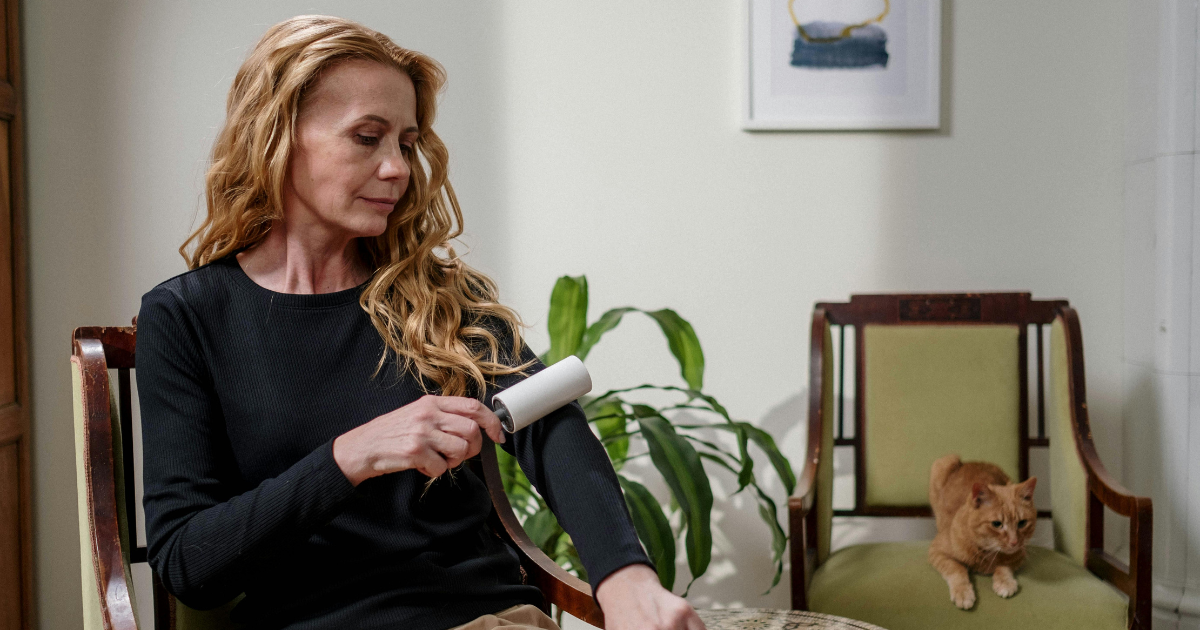Dealing with OCD can feel like being stuck on a mental hamster wheel. Those obsessive thoughts come back, again and again. Usually, the only way to quiet it, for a moment, is to do some action, a ritual, a habit, something to relieve that pressure. But here’s the exhausting part: the cycle never really ends, does it?
Still, there’s hope. You absolutely can learn how to stop OCD thoughts naturally, without jumping into medication right away. It’s not magic. It takes patience. A bit of trial. A bit of error. But it’s doable.
This article will explain how to manage these thoughts without medication. We’ll also talk about when it might make sense to reach out for more help if you’re feeling overwhelmed.
What Are OCD Thoughts and Why Are They So Persistent?
Obsessive-Compulsive Disorder (OCD) is when your brain latches onto unwanted thoughts or fears (called obsessions) and you feel like the only way to calm the anxiety they cause is by doing something (a compulsion).
These thoughts can be about nearly anything – germs, safety, guilt, control, even harm. Maybe you’re afraid you left the stove on. Or you think a random bad thought makes you a bad person. You try to neutralize the anxiety by checking again, or repeating something, or washing, or praying.

But here’s why they’re so stubborn: the cycle feeds itself. A thought comes in, and you panic. Then you act on it. This makes you feel a tiny bit better, but the thought comes back, and now your brain thinks rituals must equal relief. This way, you find yourself in a constant cycle that can affect your quality of life.
The first step toward how to combat OCD is understanding that it’s your brain playing tricks.
Mental Health Center of San Diego
Practical Ways to Reduce Obsessive Thinking Without Medication
Let’s dive into the part you’re probably here for: Ways to stop obsessive thoughts without medication. You want relief. Here’s how to get started.
These ideas might not fix everything overnight, but they can help. Some are simple. Others feel a bit odd at first. Try them out. Stick with what helps.
Mindfulness Meditation
Mindfulness is about noticing your thoughts, without reacting to them like they’re urgent alarms. You sit, breathe, and watch them come and go. They’re there, but you don’t have to chase them. Over time, you’ll see your mind calm itself, bit by bit.
Deep Breathing
You’d be surprised how powerful breathing is. When your OCD thoughts spike, slow your breathing. Four seconds in. Hold for four. Four seconds out. Repeat. It tells your brain: “Hey, we’re safe.”
Distraction
Distraction isn’t avoidance but more of redirection. Read, bake, paint, call your aunt, clean out that drawer. The goal is to put your mind on anything that’s not the spiral. It’s a temporary fix. But it’s better than drowning in loops.
Scheduled Worry Time
Sounds weird, right? But give it a shot. Set 15 minutes a day where you allow yourself to spiral. Think all the thoughts. Worry hard. Then? Done. The rest of your day is a no-worry zone. This trains your brain to postpone obsession.
Cognitive and Behavioral Techniques You Can Use at Home
This is for individuals looking for real, practical tools. Things you can try without needing a therapist’s couch or an app subscription. These tricks help you retrain your thinking and reactions.
- ERP – Exposure & Response Prevention
This is the gold standard. If you’re scared to touch a doorknob, touch it – and don’t go wash your hands. That urge to fix it? Sit with it. Let the anxiety rise and then, weirdly, it falls. Over time, your brain learns: nothing awful happens. This might be tough, but it’s how many people cured their OCD naturally.
- Thought Stopping
Distract. Shift. Refocus. You don’t have to erase all your thoughts, but don’t give an audience to thoughts that will harm you.
- Cognitive Restructuring
This is you becoming your brain’s fact-checker. When it screams “DANGER!” – you question it. Is it actually true? Or is your mind just running wild?
Here’s a cheat sheet for that:
| Obsessive thoughts | More rational reality check |
| “If I don’t double-check, something bad will happen.” | “I’ve already checked. I feel anxious, but I’m not in danger.” |
| “Thinking this makes me a terrible person.” | “Thoughts aren’t actions. Everyone has strange thoughts sometimes.” |
| “I need to do this perfectly or else.” | “Perfection’s a lie. Done is better than perfect.” |
Healthy Lifestyle Changes That Can Support OCD Management
We can’t talk about brain health without talking about body health, too. Your brain doesn’t live in a bubble. It’s connected to your food, sleep, and routines. Here are a few everyday habits that support strategies to manage health OCD:
- Exercise – Just moving, even 20 minutes a day, can help rebalance your brain.
- Sleep – Don’t cheat on sleep. 7-9 hours is better than medicating.
- Nutrition – Sugar crashes can also cause mental crashes. Feed your brain a balanced and healthy diet.
- Water – Dehydrated brains don’t think clearly.
- Rest – Focus on downtime. No screens. No to-do list. Just existing
Mental Health Center of San Diego
When Natural Isn’t Enough: Knowing When to Seek Additional Help
Sometimes you’re doing everything “right.” Breathing. Journaling. Meditating. Saying no to compulsions. But still, the thoughts don’t back off.
If that’s where you’re at, don’t beat yourself up. This doesn’t mean you’re failing. It means OCD is stubborn. And sometimes, it needs backup.
Therapy, especially CBT and ERP, can give you more tools and guidance. And yes, coping strategies for OCD like these are incredibly powerful. But if they’re not cutting it? That’s your sign. Reach out.
There’s courage in admitting, “I need more help.” You’re not weak. You’re aware. And that’s strength.
You’re Not Alone – Reach Out to Mental Health Center of San Diego
Figuring out how to stop OCD thoughts naturally can feel like trying to swim with weights strapped to your ankles. And when your own brain feels like the enemy, who do you even talk to?

That’s why places like Mental Health Center of San Diego exist. No judgment. Just people who understand and know how to help.
Whether you’re in deep or just starting to suspect OCD’s at play, there’s support out there. The customized, kind, and not one-size-fits-all.
If you or your loved one is suffering from OCD, contact Mental Health Center of San Diego. You don’t have to keep doing this on your own.
FAQs
Can OCD be treated naturally?
Yes, absolutely. You’ll see stories all over of people saying things like “how I cured my OCD naturally” – and while not everyone has the same path, natural methods can be surprisingly effective.
How can I stop intrusive thoughts?
They’re loud, invasive, and totally unwanted, but they’re still just thoughts. The key? Don’t wrestle with them. Acknowledge them, don’t engage, and move on. That’s how to stop obsessive thoughts in a healthier way.
What are natural remedies for OCD?
Breathing exercises, meditation, journaling, grounding activities, walking, talking to a friend, herbal teas (if that’s your vibe), and reducing screen time. Even laughing helps. Try mixing and matching till something clicks.
Can meditation help with OCD?
Definitely. Meditation doesn’t erase OCD, but it helps you observe your thoughts instead of obeying them. Like, “Hey brain, thanks for the weird thought, but I’m not playing today.” It builds the pause between thought and action.
Mental Health Center of San Diego
What lifestyle changes help OCD?
Consistent exercise. Less sugar. More sleep. Journaling. Slower mornings. Less caffeine. Fewer tabs open on your browser. These tiny shifts can create massive change.









